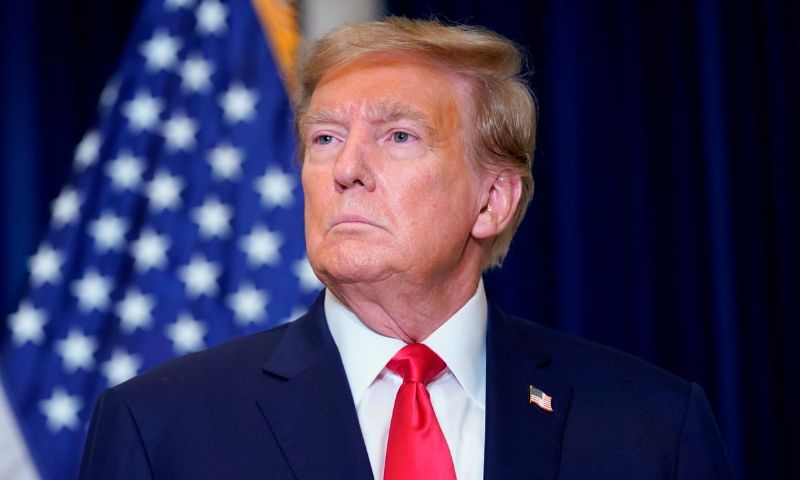WASHINGTON: In a groundbreaking decision on Tuesday, a Federal Appeals Court ruled that former President Donald Trump is not immune from prosecution and can stand trial on charges related to alleged conspiracy to overturn the 2020 election.
The US Court of Appeals for the District of Columbia Circuit unanimously rejected Trump’s claim of immunity from criminal liability for actions taken during his presidency, stating that such a stance would undermine the separation of powers and place the president above the law.
This ruling represents a significant legal setback for Trump, who is also the leading candidate for the 2024 Republican presidential nomination.
Trump, through a spokesperson, announced plans to file another appeal, criticizing the decision on his Truth Social platform and arguing that presidential immunity is necessary for effective governance.
The Appeals Court decision temporarily stays the immunity ruling until Monday, allowing Trump the opportunity to appeal to the US Supreme Court.
Meanwhile, Trump had been scheduled to begin trial in Washington on March 4, facing charges of conspiring to overturn the election results, but the trial was postponed pending the appeals court ruling.
Despite Trump’s claims of immunity, the appellate judges emphasized that as a private citizen, he is subject to prosecution like any other individual.
Special Counsel Jack Smith, who filed the election conspiracy case against Trump in August, had been pushing for the trial to commence in March.
Trump also faces state charges in Georgia related to the 2020 election and federal charges in Florida for allegedly mishandling classified information. Throughout his presidency, he faced two impeachments by the House of Representatives, but was acquitted by the Senate both times.
During arguments before the Appeals Court, Trump’s attorney contended that a president can only be prosecuted for actions taken while in office if impeached and convicted by Congress.
However, the appellate judges rejected this argument, stating that presidential immunity against federal indictment would undermine the legislative, executive, and judicial branches of government.
In addition to the legal battles surrounding the election, the Supreme Court is set to hear another important case related to Trump’s involvement in the January 6, 2021 attack on the US Capitol.
The Colorado Supreme Court had previously barred Trump from appearing on the Republican presidential primary ballot in the state due to his alleged role in the attack, and the Supreme Court is scheduled to hear oral arguments in the case on Thursday. –AFP/APP
























